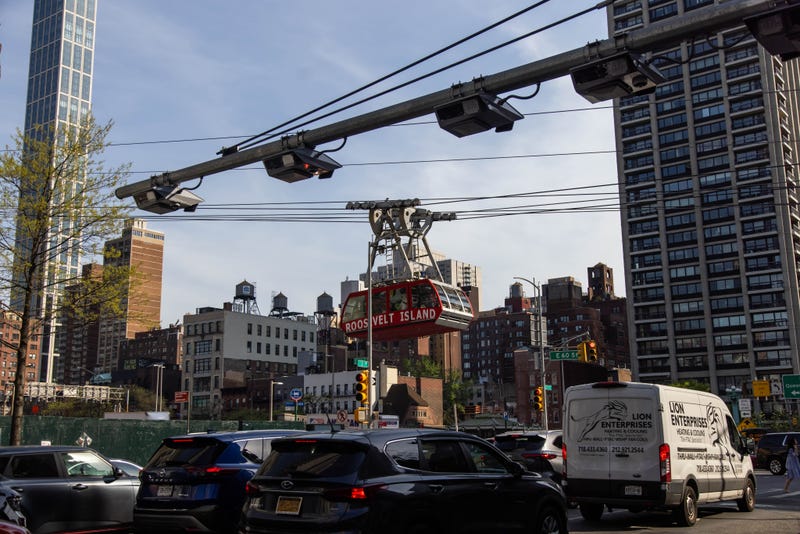
NEW YORK (BLOOMBERG) -- New York City’s transit network is seeking to raise $230 million in short-term debt to finance needed infrastructure for its congestion toll plan implemented earlier this year.
Congestion pricing charges motorists to drive on Manhattan’s busiest streets and has been a target of the Trump administration. The Triborough Bridge and Tunnel Authority plans to sell the bond anticipation notes on Tuesday in a competitive deal, according to borrowing documents.
The agency — a part of the Metropolitan Transportation Authority, which oversees the city’s subway, bus and commuter rail lines — will use the proceeds to refund prior short-term debt that matures before the end of this year and was used to pay for tolling gantries and infrastructure needed to implement the new fee. The new notes will mature on May 15, 2026.
Drivers started paying the fee in January, with the MTA collecting $449 million of congestion pricing revenue through August. That revenue source won’t provide a legal security for the $230 million of notes, although the MTA expects to repay the short-term securities with congestion pricing revenue or long-term debt backed by those funds, according to borrowing documents.
The MTA is fighting in court to keep the tolling plan, which charges most motorists $9 during peak hours to drive south of 60th Street in Manhattan. The transit provider sued the Trump administration in February after US Department of Transportation rescinded federal approval of the tolling program granted under the Biden administration. US District Judge Lewis Liman has yet to rule on the issue, leaving the program in limbo.
MTA officials have said the tolling program needs to be in place for about a year before it can borrow against that revenue source so potential investors can see how the toll performs over time.
“We’ve always intended to give congestion tolling revenues time to season before issuing long-term bonds,” an MTA spokesperson said in a statement. “Our timing will depend in large part on establishing a track record of congestion tolling revenue collections before going to the rating agencies and the market.”
The MTA continues to collect the toll, but until the litigation is resolved it will be difficult for the transit provider to sell debt secured solely with just the tolling revenue, said Daniel Solender, head of municipal investments at Lord Abbett & Co.
“It looks like it’s going to be permanent, but it’s not 100% certain,” Solender said. “So it’s better not to have it all reliant on one source of revenue.”
More stories like this are available on bloomberg.com.
